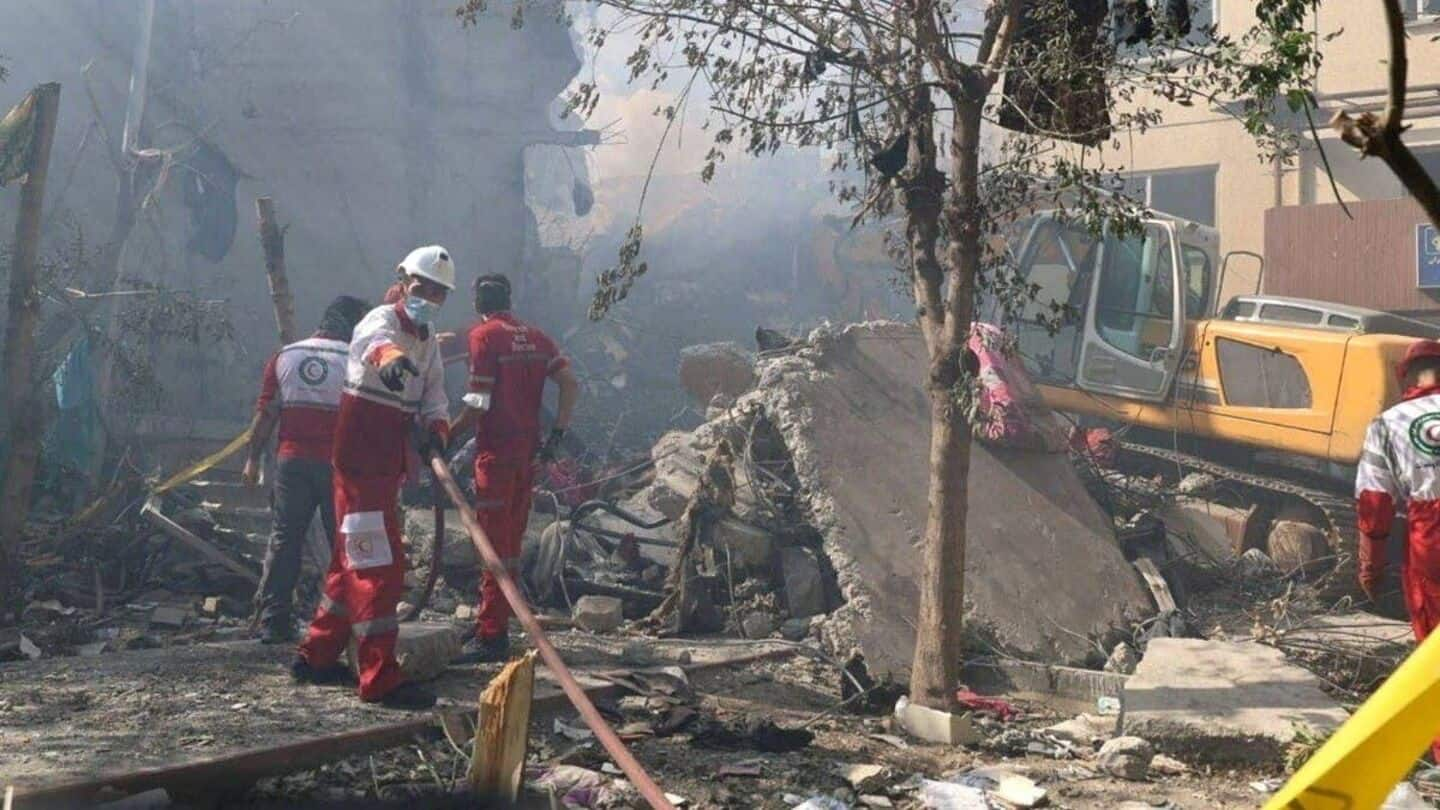
Israel strikes defense arrays in Tehran for 1st time
What's the story
Israel launched airstrikes on dozens of surface-to-surface missile launchers in Iran, the Israeli military said on Saturday. The move came after Iran retaliated with multiple missile barrages against Israeli strikes targeting its military and nuclear facilities. The Israeli attack reportedly killed key generals and nuclear scientists. Iranian state media says 78 people were killed in the capital alone and more than 300 were injured. Despite international calls for de-escalation, both sides continued to exchange fire for a second day.
Targeted areas
Israel strikes 'strategic sites' in Tehran
The Israeli military said its air force "struck dozens of targets, including surface-to-air missile infrastructure," aiming to damage Iran's aerial defense capabilities around Tehran. It said that overnight, the air force "struck dozens of targets, including surface-to-air missile infrastructure, as part of the effort to damage the Iranian regime's aerial defense capabilities. This was the first time since the war began that the Israeli air force struck defense arrays in Tehran, over 1,500km from Israeli territory.
Official statement
Air force chief on overnight strikes
The Israeli air force chief, MG Tomer Bar, stressed the operational and national significance of the overnight strikes in Tehran. "We damaged -- and will continue to damage -- strategic sites and enemy sources of knowledge," he was quoted as saying in a military statement. He added that such operations require complicated coordination between different forces.
Iranian response
Iran retaliates, targets several Israeli cities
Iran retaliated with missile barrages targeting several Israeli cities. The attacks reportedly killed two people when a rocket struck a residential neighborhood. In response to the Iranian strikes, Israel vowed to exact a heavy price from Iran for its actions. Israel's attack resulted in the deaths of Major General Hossein Salami, he head of the secretive Islamic Revolutionary Guard Corps (IRGC); Ali Shamkhani, the former secretary of the Supreme National Security Council of Iran; and Mohammad Bagheri, its military chief.